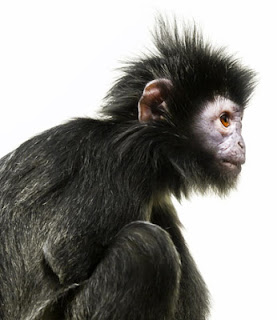In Nancy's household, the college-fund animals were the only ones that earned their keep financially; still, others exhibited entertaining quirks and personalities for which they're remembered fondly decades later, such as the unlikely and endearing friendship that arose between a gangly Irish setter called Shaun, and a mallard duck named Lashes.
Each evening, when it was time to put Lashes in for the night, Nancy had only to tell Shaun, "Go get Lashes!" and he would locate the duck, place a gentle paw on her back, and keep her in place for Nancy to collect. Lashes never appeared frightened of the large and lanky dog; in fact, the two would curl up together to sleep, and Lashes regularly spent time grooming and removing fleas from Shaun's coat.
Such are the personalities and quirks we observe in animals - qualities that make them ideal characters for books!
Series featuring animals as main characters
The realm of fantasy offers stories that completely blur the line between humans and animals; animals become the main protagonists: heroes, villains, and everything in between. The varied qualities of different species, such as intelligence, cunning, loyalty, fierceness, gentleness and compassion, make them engaging choices for writers and readers. We become so absorbed in their characters and adventures, that the line between human and animal disappears completely. Here are some links to series in which animals are the main characters:
Series featuring animals as companions
The wordless companionship of animals makes them prime friends to take on adventures. Their protection, friendship, and comfort often make all the difference during a lonely and possibly dangerous adventure. A challenging journey or a mission of mystery seems so much more possible with a faithful pet, and they're often able to provide humour when it's needed most. Here are some links to series in which animals make loyal companions:
Series featuring animals that can communicate
Animals can be so expressive sometimes their communication doesn't feel wordless. But what if they could talk? What if they could tell you what they're thinking? Warn you of danger? Stories in which an animal is able to communicate in some way, allow us to experience the world from a different perspective. Here are some links to series in which animals can communicate:
Series featuring animal stories that make the heart race
Animals are not always friendly companions. Sometimes they frighten and threaten; sometimes they must battle fiercely to protect themselves and those they care about; sometimes they simply battle their own fears in the face of grave challenges. Here are some links to animal series that cause the heart to race:
Author Erin Hunter has also captured this excitement in two series (which are further divided into sub-series), called Seekers and Warriors.
Series featuring animals that need care or rescue
In other stories, roles are reversed and it is humans who are the loyal companions and fierce protectors. After seeing the vulnerability and helplessness of animals that have been hurt or mistreated, compassionate and heroic children are propelled on missions to rescue and care for animals in need. Here are some links to series in which animals need care or rescue:
Make no mistake: the range of animal series books is as varied as the animal kingdom itself, and, while pigs are by no means the only species singled out as worthy protagonists, it's interesting to note that they do feature prominently. But then that's hardly a surprise, is it Nancy?
Marielle [January 24, 2013]




